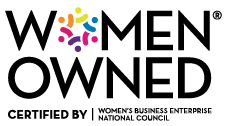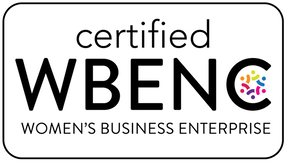Unveiling the Illusion: The Truth Behind Chief Diversity Officers and DEI Initiatives in Corporate America
A thought-provoking exploration of the actual impact and effectiveness of Chief Diversity Officers and diversity, equity, and inclusion (DEI) programs in today's corporate landscape
How does your company/employer promote diversity, equity, and inclusion throughout its organization? This includes but is not limited to recruiting and retaining diverse talent, creating inclusive workplace policies, and fostering a culture of belonging.
In recent years, the corporate world has placed a significant emphasis on diversity, equity, and inclusion (DEI) initiatives. Many companies have appointed Chief Diversity Officers (CDOs) to spearhead these efforts, promising a more inclusive and equitable workplace. However, beneath this facade of progressiveness lies a deeper truth that begs to be examined.
While the creation of CDO roles and the implementation of DEI initiatives may initially appear as genuine commitments to fostering diverse and inclusive environments, closer scrutiny reveals a different reality. The truth is that some companies may view these positions and initiatives as mere tokens or checkboxes to appease public opinion and avoid potential backlash.
The recent Supreme Court decision that upended equal protection laws and rules affirmative action can no longer be the basis of college admissions has trickled to all American systems to include Corporate America. Here we see a mass exodus of firing and resigning Black Chief Diversity Officers at places such as Netflix and Disney. And Black CDO's speak of untenable, hands-tied workplace experiences where they couldn't really do their job because DEI was for showcase purposes not authentically substantive, lasting changes.
We have long since recognized that appointing a CDO does not automatically guarantee a genuine commitment to diversity and inclusion. This illusion of progress has drastically hindered the advancement of meaningful DEI initiatives and perpetuates systemic inequalities within the corporate structure.
Furthermore, the responsibility of driving diversity and inclusion should never solely rest on the shoulders of a single individual. While CDOs play a vital role in advocating for change, it is essential for the entire leadership team and workforce to actively engage in promoting diversity, equity, and inclusion. Without a collective effort and genuine commitment from all levels of the organization, the impact of DEI initiatives may remain superficial and fail to address the root causes of inequality.
To dismantle the illusion surrounding CDO roles and DEI initiatives, companies must prioritize transparency and accountability. It is crucial for organizations to provide CDOs with the necessary resources, authority, and support to effect real change. This includes allocating adequate budgets, implementing comprehensive training programs, and fostering a culture that celebrates diversity and values inclusivity.
Moreover, companies should regularly evaluate and measure the effectiveness of their DEI initiatives, ensuring that progress is not merely measured by the number of diverse hires or the existence of employee resource groups. True progress lies in the creation of equitable opportunities, the elimination of biases in decision-making processes, and the establishment of a culture where all employees feel valued, respected, and empowered.
In conclusion, while the emergence of Chief Diversity Officers and DEI initiatives in corporate America may seem promising on the surface, it is crucial to unveil the illusion and examine the underlying truth. Genuine commitment to diversity, equity, and inclusion requires more than just the creation of positions and initiatives.


EXPLORE OUR SITE
All Rights Reserved | A. Solomon Recruits




